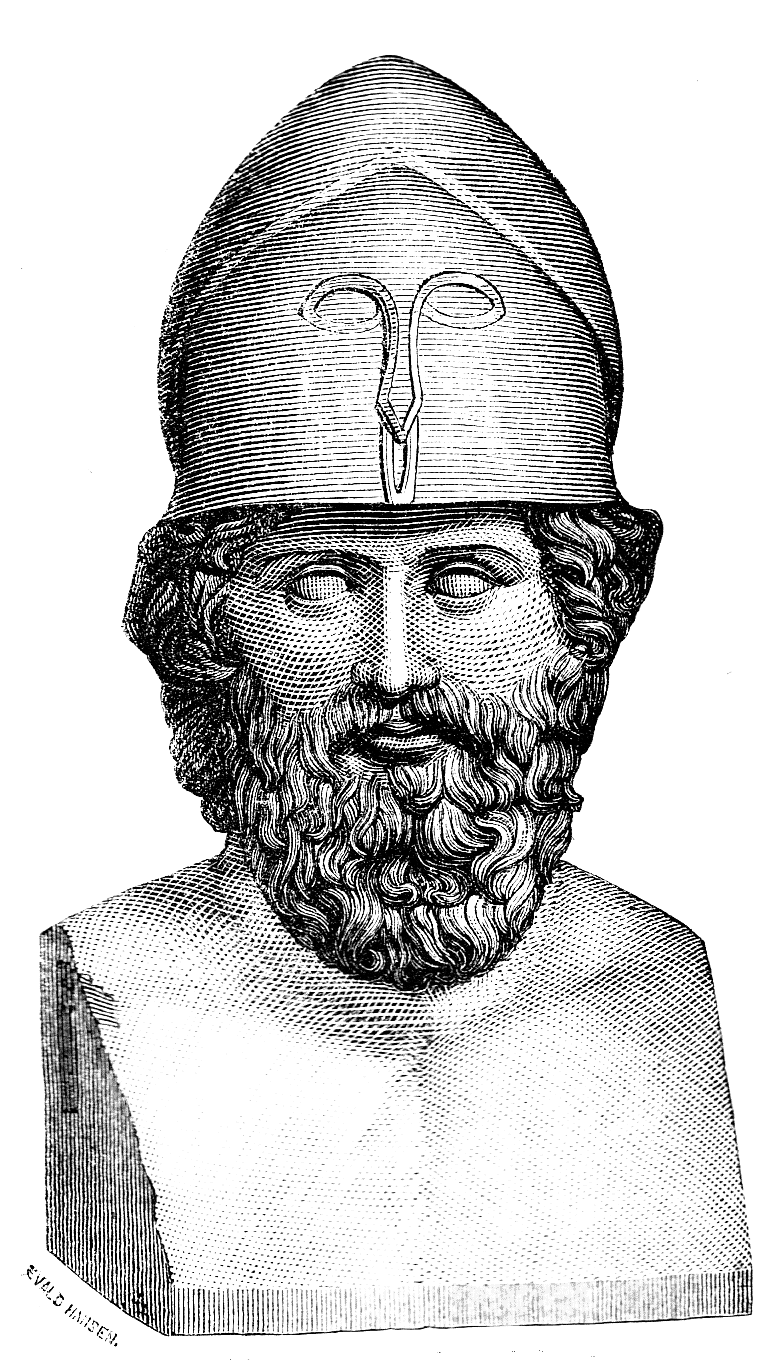As quoted in The Columbia Book of Quotations (1993) edited by R. Andrews http://books.google.com/books?id=4cl5c4T9LWkC, p. 894.
Original quote from Herodotus, The Histories http://www.perseus.tufts.edu/hopper/text?doc=Hdt.%208.111&lang=original (8.111): "(2)...for the men of that place, the first islanders of whom Themistocles demanded money, would not give it. When, however, Themistocles gave them to understand that the Athenians had come with two great gods to aid them, Persuasion and Necessity, and that the Andrians must therefore certainly give money, they said in response, “It is then but reasonable that Athens is great and prosperous, being blessed with serviceable gods."
Herodotus: Original Greek http://www.perseus.tufts.edu/hopper/text?doc=Perseus%3Atext%3A1999.01.0125%3Abook%3D8%3Achapter%3D111: (2) πρῶτοι γὰρ Ἄνδριοι νησιωτέων αἰτηθέντες πρὸς Θεμιστοκλέος χρήματα οὐκ ἔδοσαν, ἀλλὰ προϊσχομένου Θεμιστοκλέος λόγον τόνδε, ὡς ἥκοιεν Ἀθηναῖοι περὶ ἑωυτοὺς ἔχοντες δύο θεοὺς μεγάλους, πειθώ τε καὶ ἀναγκαίην, οὕτω τέ σφι κάρτα δοτέα εἶναι χρήματα, ὑπεκρίναντο πρὸς ταῦτα λέγοντες ὡς κατὰ λόγον ἦσαν ἄρα αἱ Ἀθῆναι μεγάλαι τε καὶ εὐδαίμονες, αἳ καὶ θεῶν χρηστῶν ἥκοιεν εὖ... (via Perseus Project)
Herodotus is quoted by Plutarch in Themistocles http://www.perseus.tufts.edu/hopper/text?doc=Perseus%3Atext%3A2008.01.0066%3Achapter%3D21%3Asection%3D1 (21.1): he said he came escorting two gods, Persuasion and Compulsion. ( Greek http://www.perseus.tufts.edu/hopper/text?doc=Perseus%3Atext%3A2008.01.0074%3Achapter%3D21%3Asection%3D1: "δύο γὰρ ἥκειν ἔφη θεοὺς κομίζων, Πειθὼ καὶ Βίαν")
NOTE the two different sets of "gods" in the Original Greek: πειθώ http://www.perseus.tufts.edu/hopper/morph?l=*peiqw%5C&la=greek&can=*peiqw%5C0&prior=komi/zwn&d=Perseus:text:2008.01.0074:chapter=21:section=1&i=1 τε καὶ ἀναγκαίην http://www.perseus.tufts.edu/hopper/morph?l=a%29nagkai%2Fhn&la=greek&can=a%29nagkai%2Fhn0&prior=kai\&d=Perseus:text:1999.01.0125:book=8:chapter=111&i=1 (Herodotus); Πειθὼ http://www.perseus.tufts.edu/hopper/morph?l=*peiqw%5C&la=greek&can=*peiqw%5C0&prior=komi/zwn&d=Perseus:text:2008.01.0074:chapter=21:section=1&i=1 καὶ Βίαν http://www.perseus.tufts.edu/hopper/morph?l=*bi%2Fan&la=greek&can=*bi%2Fan0&prior=kai\&d=Perseus:text:2008.01.0074:chapter=21:section=1&i=1 (Plutarch)
